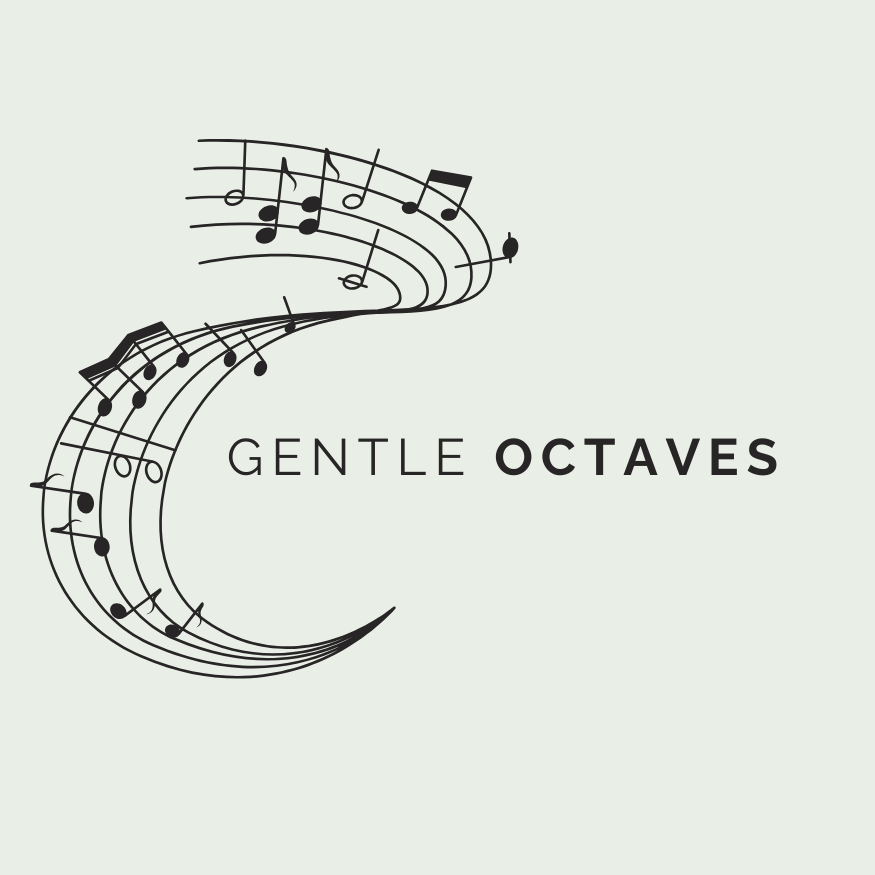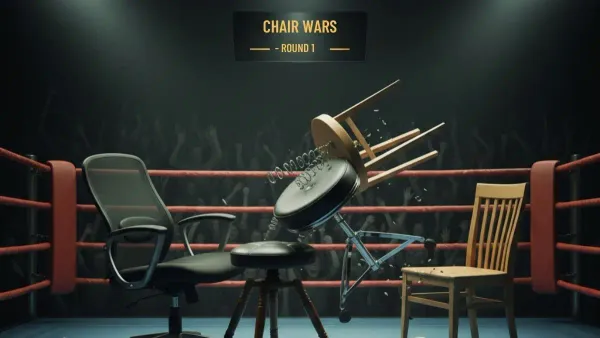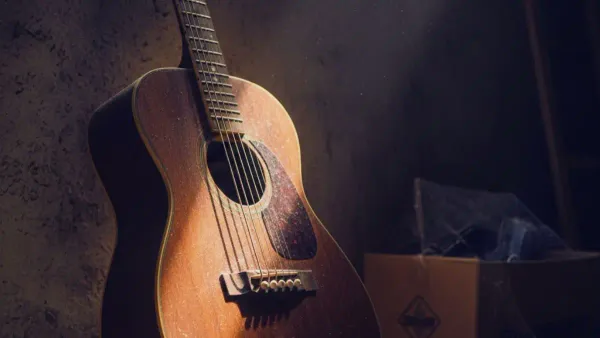The 20-Minute Rule: How to Build a Guitar Practice Habit That Actually Sticks
What if the secret to consistency wasn't discipline at all but permission to stop?
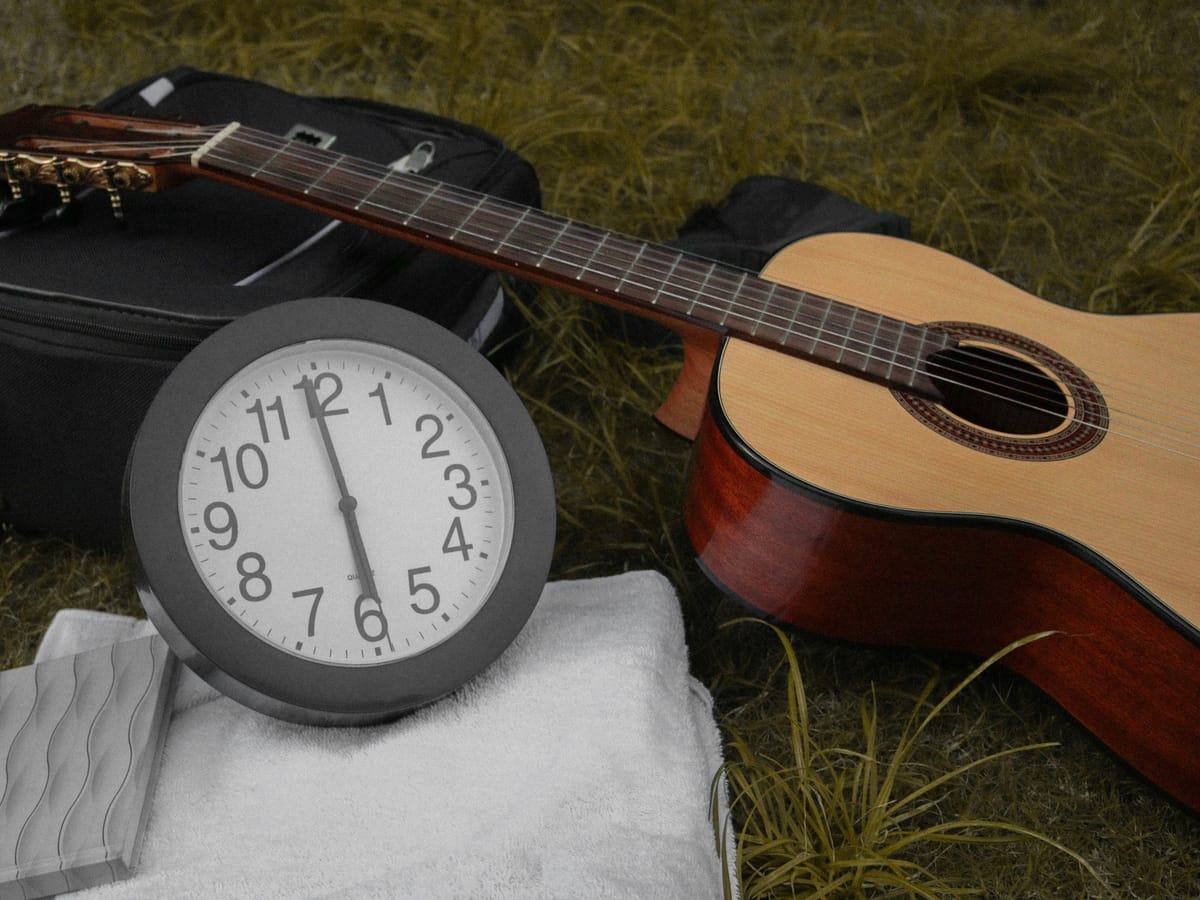
You know that feeling, right? You finally sit down with the guitar after weeks of promising yourself you'd get back to it.
Maybe you've got an hour free. Maybe you're thinking, okay, today's the day I'm going to really dig in, make up for all that lost time.
And then twenty minutes in, your fingers start complaining.
Or your lower back starts tightening up.
Or your brain just....fogs over. The focus isn't there anymore. But you push through because you think you're supposed to. Because real practice means an hour minimum, doesn't it?
That's what all the YouTube guys say. That's what you did when you were younger.
So you keep going. And by the end, you're frustrated, a bit sore, and you don't pick the guitar up again for another two weeks.
I've seen this pattern in so many clients over the years not just with guitar, but with exercise, with rehab routines, with any kind of movement practice.
We think more is better. We think consistency means grinding. And we end up burning out before we even get started.
But here's what I learned, both as a trainer and as someone who had to rebuild his own relationship with the guitar after burnout: The body has its own rhythm.
And if you're brave enough to listen to it instead of overriding it, you'll actually get further.
Let me tell you about the 20-minute rule, and why it might be the most important practice habit you'll ever build.
The Problem With "More Is Better"
I mean, we've been conditioned to think that progress only happens through force, you know? Push harder. Do more reps. Practice longer.
And look, I get it there's a time and place for intensity. I'm not saying you can never have a longer practice session.
But when you're trying to build a habit, especially when you're coming back to music after time away, or you're dealing with stiff hands or arthritis or just the reality of being over 40 and not having the same stamina you used to... that "more is better" mentality will kill your momentum before it even starts.
Here's what actually happens when you push too long:
Your body starts compensating.
Maybe your shoulders hike up because your hands are tired. Maybe you start gripping the neck harder to make up for fatigue.
Maybe your posture collapses because you're trying to finish that one more exercise.
And now you're not just tired, you're training tension into your system. You're literally practicing the thing that's going to hurt you later.
Your brain checks out.
There's actual research on this: focused attention has limits.
For most people, especially when learning something cognitively demanding like music, quality focus drops off significantly after about 20-25 minutes.
You can keep doing the thing, but you're not really learning anymore. You're just going through motions.
The next session feels like a punishment.
If every practice leaves you sore, frustrated, or exhausted, your nervous system starts associating the guitar with discomfort.
And guess what? You'll find every excuse not to pick it up. Your brain's just trying to protect you from what it's learned is an unpleasant experience.
So we end up in this cycle: practice too long → feel like crap → avoid the guitar for days or weeks → feel guilty → finally force yourself to practice → push too hard again to "make up for it" → feel like crap...
You know how that feels? If you have doubts about picking up the guitar or just getting back to music again after a break way you can read my post here for inspiration It’s Not Too Late: Reclaim Your Musical Joy
What the 20-Minute Rule Actually Is
Alright, so here's the concept, and it's stupidly simple:
Practice for 20 minutes. Then stop. Even if you want to keep going. Especially if you want to keep going.
I know, I know. It sounds counterintuitive. But stay with me here.
The 20-minute rule isn't about limiting yourself because you're weak or incapable. It's about training your nervous system to trust the process instead of fearing it.
It's about ending every session while you still feel good, while you still have a bit left in the tank, so that your body and brain associate guitar practice with pleasure, not pain.
Think about it this way: when's the last time you left a meal feeling perfectly satisfied: like, just right, not stuffed and you thought, damn, I can't wait to eat again? That's the feeling we're going for. You want to end your practice wanting more, not relieved it's finally over.
It’s simple: Commit to just 20 minutes of guitar practice, no matter how you feel. Not “when you have time,” not “when you’re in the mood”: every day. Twenty minutes.
Why 20 Minutes?
It's not arbitrary. There's a few things happening in that timeframe:
It's long enough to matter.
You can warm up, work on something meaningful, and cool down. You can make actual progress. It's not just messing around, it's a real practice session.
It's short enough to stay focused.
Your attention stays sharp. Your body doesn't start breaking down. You're working in that sweet spot where you're actually learning, not just grinding.
It's sustainable for almost anyone.
Even on a busy day, even when you're tired, even when your hands aren't feeling great you can usually find 20 minutes. It doesn't require heroic willpower or perfect conditions.
It builds positive momentum.
When you consistently end practice feeling good, you want to come back. You start looking forward to it instead of dreading it. And that's when the habit actually sticks.
You don’t need to feel ready to begin you just need to begin to feel ready.
This is how you win on the days you feel uninspired, tired, or just off.
How to Actually Use the 20-Minute Rule
Okay, so here's how this works in practice. And I mean really works, not just as a nice idea.
1. Set a Timer (Seriously)
Don't just eyeball it. Set an actual timer for 20 minutes. Because here's what happens if you don't: you'll either stop too early when it gets slightly hard (and never build capacity), or you'll blow right past 20 minutes because you're "on a roll" and then pay for it later.
The timer isn't a limitation. It's permission to be fully present for 20 minutes, knowing that you'll stop when it goes off. No negotiating with yourself. No guilt about stopping. No pushing through when your body's done.
2. Make Those 20 Minutes Count
This isn't 20 minutes of aimless noodling (though honestly, if that's all you've got energy for some days, that's fine too). But generally, you want some structure:
Minutes 1-3: Warm up. Gentle finger stretches. A few open chords. Just wake your hands up. Don't jump straight into the hardest thing you're working on. Looking for a 5 Min warm up you can easily follow: Hand tension While playing Guitar? Try This 5-Minute Fix
Minutes 4-17: Focused work. Pick ONE thing. Not five things. One. Maybe it's a specific chord progression that's giving you trouble. Maybe it's a strumming pattern. Maybe it's just playing through a song slowly, really paying attention to clean chord changes. Whatever it is, that's your focus for today.
Minutes 18-20: Cool down and review. Play something you already know well and enjoy. End on a positive note. Maybe just strum through a chord progression that sounds good. Let your hands relax. Notice how you feel.
3. Stop When the Timer Goes Off
This is the hardest part for a lot of people. You're finally getting into flow, things are clicking, and the timer goes off. Your first instinct is to keep going.
Stop anyway.
I know this feels wrong. But here's what you're doing: you're teaching your system that you can trust yourself. That practice doesn't have to mean pushing until you're exhausted. That there will be another session tomorrow (or the next day), and you don't have to squeeze everything into right now.
Plus, and this is the manual osteopath in me talking, ending while you still feel good means you're not training fatigue patterns. You're not cementing tension. You're keeping the movement quality high for the entire session.
4. Track It Simply
You don't need some elaborate journal. Just mark it down. Put an X on a calendar. Send yourself a text. "Practiced 20 minutes today." That's it.
Why? Because you need to see the pattern building. Our brains love visible progress. And when you start seeing those X's stack up: five days in a row, ten days in a row, something shifts. You start identifying as someone who plays guitar regularly. Not someone who's trying to get back into it. Someone who does it.
What Happens If You Go Over 20 Minutes?
Brilliant, but it’s not the goal.
The win is that you’ve removed the mental hurdle of “finding time” or “feeling motivated.”
If you keep going, that’s a bonus. Not a requirement.
This flips practice from a chore to a choice.
What Happens After 30 Days
I'm going to tell you a story.
There was a winter, maybe six or seven years ago, where I'd completely burned out. Work was brutal, personal life was a mess, and I hadn't touched the guitar in months. I kept thinking I needed to get back to it, but just couldn't face how hard it was going to be once I picked up you know?
But every time I thought about practice, I just felt... heavy. Like it was this thing I should do, not something I actually wanted to do.
So I made a deal with myself. Twenty minutes a night. That's it. I didn't have to feel inspired. I didn't have to be "good." I just had to sit down with the guitar for 20 minutes before bed.
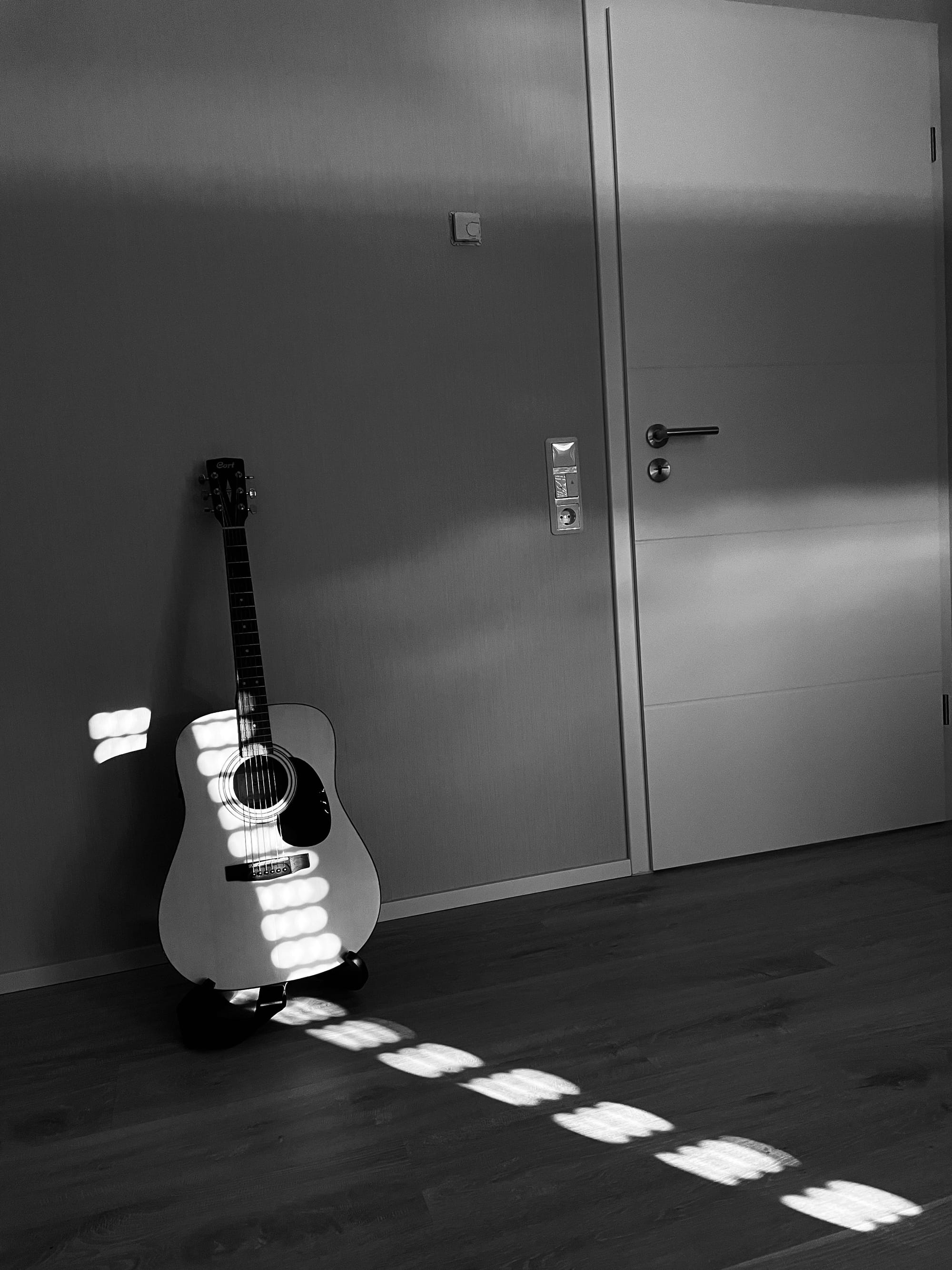
The first week was clunky. My fingers hurt. My calluses had gone soft. I felt frustrated at how much I'd lost.
But I stuck with the rule: 20 minutes, then stop. Even when I wanted to keep going to try to fix that one chord change that was bugging me.
Here's what happened: after about ten days, I noticed I wasn't dreading it anymore. I'd actually start thinking about which song I wanted to work on while I was making dinner.
By week three, I was looking forward to those 20 minutes like a small gift I was giving myself at the end of the day.
And somewhere around week five or six, I realized the guitar had become medicine again. Not because I'd gotten dramatically better technically (though I had improved) but because I'd rebuilt trust with myself.
I'd proven that I could show up consistently without it having to be this big production or this test of worthiness.
I'm still playing 20-minute sessions most nights. Sometimes I go longer now if I'm really in flow and my body feels good.
But I never have to. The pressure's off. And that's made all the difference.
Final Thoughts
Don’t wait for inspiration. Make practice so simple you can start even on your worst day.
The music and the motivation will follow.
Key Reminder: Habits aren’t built on motivation they’re built on what you actually do.
F.P.
You'll learn:
- The 7 Pillars of Guitar Posture that actually matter
- How to warm up properly
- Daily hand stretches to prevent tension and overuse
- Fretting and strumming technique that protects your joints
- A repeatable, pain-free practice routine for consistent progress
- Warning signs to look out for before pain becomes injury
F.P
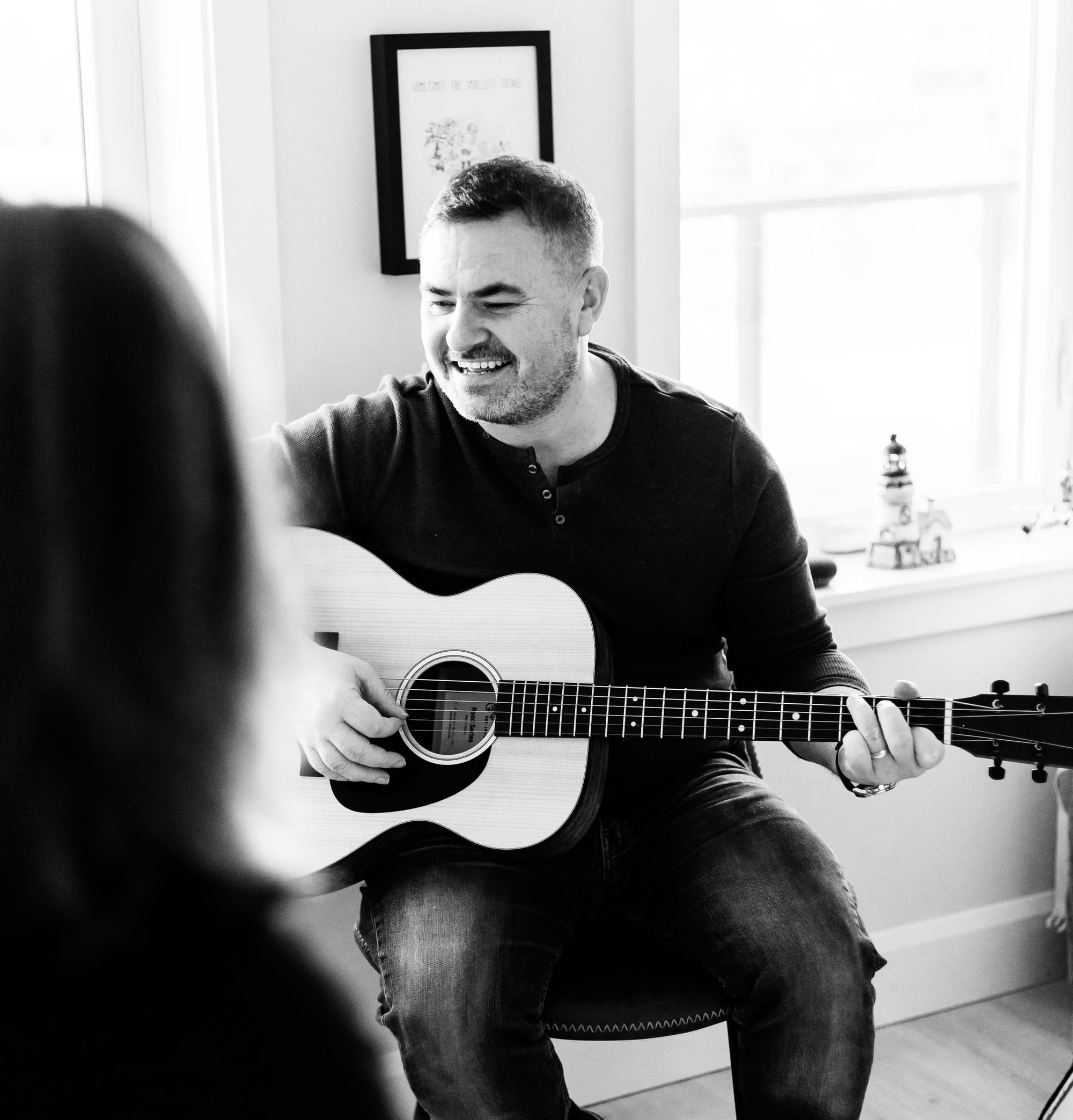
F.P. O’Connor
F.P. O'Connor is a Musician and Movement Specialist whose work is informed by extensive training in Manual Osteopathy, Psychology, and Strength Coaching.
He is the founder of Gentle Octaves, helping adult players develop practical, science-based systems for ease, control, and long-term playing confidence.
www.gentleoctaves.com
Release → Reset → Rebuild™ your sound
Want the FULL proven System I use to treat pain:
FAQ
Q: Is 20 minutes of guitar practice really enough to make progress?
A: Yes 20 minutes is enough when the session is focused, structured, and free of excess tension.
Progress has nothing to do with marathon sessions. Adults, especially over 40, learn best in short, deliberate blocks where the brain can focus deeply without fatigue.
Twenty minutes is long enough to:
- Warm up your hands
- Target one specific skill
- Reinforce clean technique
- End with something musical (which locks learning in)
Long, unfocused sessions often create more tension than progress. Short, intentional work builds skill faster and keeps your hands healthy. If you know exactly what the session is for, 20 minutes is plenty.
Q: What should I do if I only have 20 minutes a day, especially with work, rehab, or health issues?
A: Use a simple structure: quick warm-up → one focused challenge → a musical payoff.
Limited energy means you can’t waste reps. The most effective micro-routine is:
- 1–2 min warm-up
Get the hands moving and reduce stiffness. - 10–12 min of focused work
One skill. One riff. One passage. Zero multitasking. - 5-7 min musical reward
A song you enjoy, so the brain associates practice with pleasure, not pressure.
This style protects your joints, reduces mental fatigue, and creates real improvement even during recovery or heavy work weeks. Pick one target per day. That’s where the progress happens.
Q: If I skip a day, am I ruining the routine?
A: No: missing a day doesn’t break progress. What matters is returning, not perfection.
Adults don’t learn like kids. Life happens: work, childcare, fatigue, flare-ups. Consistency is built on returning after interruptions, not maintaining an unbroken streak. Missing a day does not reset your skill. What resets your skill is quitting.
Think of practice like joint mobility:
It’s cumulative, not fragile.
You don’t need a perfect calendar you need momentum.
Q: Will short practice sessions actually deepen my musicianship, not just technical skill?
A: Yes mindful short sessions improve musicality because they build awareness, tension control, and expressive freedom.
Musicianship isn’t built through brute force; it’s built through presence.
When sessions are short, you’re less distracted, less fatigued, and more connected to:
- tone
- touch
- phrasing
- tension patterns
- body-to-instrument awareness
This kind of practice strengthens the mind–hand–instrument loop, which is the heart of expressive playing. Over months, this does more for musicianship than hours of sloppy repetition. End every session by playing something emotional, not mechanical.
Science & Sources
Ntoumanis, N., Healy, L. C., Sedikides, C., Duda, J., Stewart, B., Smith, A., & Bond, J. (2014). When the going gets tough: the "why" of goal striving matters. Journal of personality, 82(3), 225–236. https://doi.org/10.1111/jopy.12047
Gardner, B., Lally, P., & Wardle, J. (2012). Making health habitual: the psychology of 'habit-formation' and general practice. The British journal of general practice : the journal of the Royal College of General Practitioners, 62(605), 664–666. https://doi.org/10.3399/bjgp12X659466
